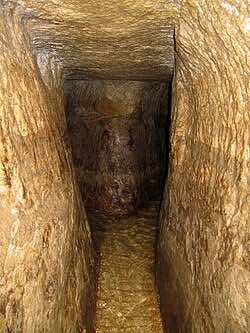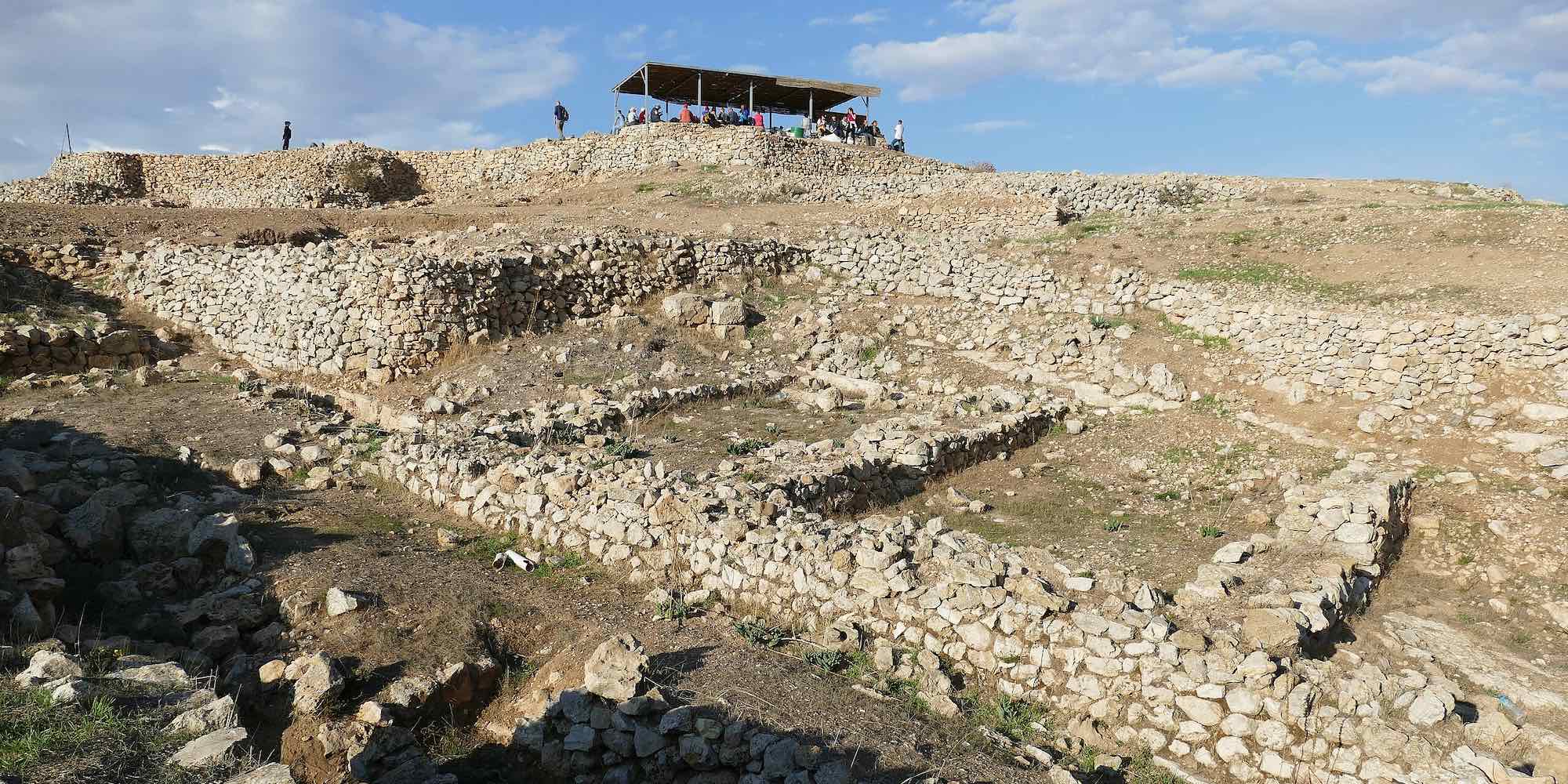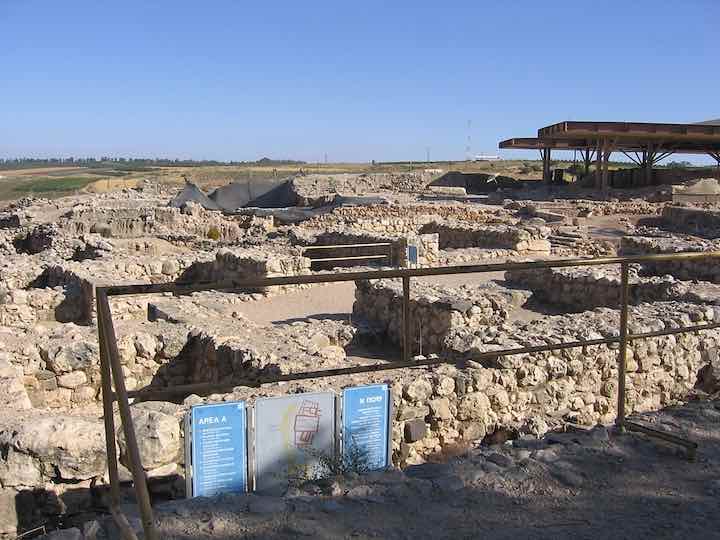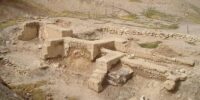Have you ever searched the internet for answers to this question: does archaeology prove or disprove the Bible?
If you have, you’ll likely have found dozens of sites answering the question. Most are Christian sites giving details of discoveries that support the Old Testament historical accounts.
But is that the truth? Or have the smaller number sceptical sites got it right when they say that the Bible has been proved to be wrong?
I went looking for unbiased answers. And this is what I found.
This page is based on the information outlined in Does archaeology show the Old Testament is true?
Different camps = different answers
The answer we get depends on who we ask. Sad, but true. There are three different approaches:
- The “maximalists” are Christians or Jews who believe that the books of the Old Testament are useful and generally reliable historical documents. They use archaeology apologetically, to support the historical accuracy of the Old Testament.
- The “minimalists” are sceptical that the Bible’s accounts have any historical value, and doubt the existence of many of the well-known Old Testament characters. They rely almost totally on archaeology, and seem more inclined to accept non-Biblical texts than accept Biblical texts.
- Between these two extremes are archaeologists and historians who believe the Bible can provide historical information if it is analysed critically together with other texts and archaeology.
To try to obtain a true answer, I have read all three viewpoints, but have given most attention to the middle view.
There isn’t one answer
There isn’t a simple answer to this question. Archaeology supports some part of the Bible, opposes other parts and is silent on others.
The Patriarchs
The story of the Jewish nation begins with 4 generations of “patriarchs”: Abraham, Isaac, Jacob and Joseph. Their stories are set sometime in the period 2100-1600 BCE. They were nomadic herdsmen who built nothing and left little trace.
So we can’t expect archaeology to have any direct record of them, whether they were historical characters or legends.
The best archaeology can do is it shows that some of the names and cultural practices mentioned in the Bible are a fair reflection of the times, though there are also some anachronisms (presumably as the stories were passed down orally and modified in the process).
Conclusion: archaeology neither confirms nor disproves this part of the Bible.
The exodus
One of the foundational stories in the Jewish scriptures is that of Moses leading 2 million Israelite slaves out of Egypt, across the Sinai desert to the border of Canaan, the “Promised Land”.
Again, you wouldn’t expect many archaeological remains even if this story was reliable history. Fugitive slaves are unlikely to carry stone monument to leave in the desert, and any artefacts they did leave behind would quickly get swallowed up by sand.
But the Bible does report that they camped for 38 years at a location on the edge of Canaan, and many archaeologists think 2 million people for 38 years would have left some trace there. Did they live in tents all that time? You’d have to think they might have built something more substantial – if they were actually there.
There are many other practical difficulties in a group of two million moving together across a desert.
So there are serious questions about the exodus, especially the numbers involved. The minimalists are sure it never happened. Even some maximalists agree that the numbers are way too high – a common but disputed explanation is that the word “thousand” should be translated clan or family, so that “600 thousand men” becomes 600 families, but even this seems too high a number.
Nevertheless, there are a number of features in the story of the exodus, especially some of the names and religious practices of the runaway slaves have clear origins in Egypt.
Conclusion: archaeology does not support the idea that 2 million people crossed the Sinai under Moses, but it does suggest that the Jewish nation has a connection with Egypt. It seems likely that a smaller group of fugitives did make that journey.
The conquest of Canaan
This is where things get really interesting, with major disagreements. For there is plenty of archaeology, but dates and interpretations differ wildly and the location of some cities is disputed.
The first half of the book of Joshua describes a fast and bloodthirsty campaign in which Joshua and the Israelites capture city after city and totally wipe out everyone in them. Maximalists think this happened about 1400 BCE because this chronology is given in the Bible.
But the latter part of Joshua and the following book of Judges shows the Israelites living in the land among other peoples who haven’t been eliminated at all. And minimalists say this is closer to the truth. They doubt Joshua existed or that an invasion occurred, and say that the later nation of Israel arose from the mix of peoples who had moved into Canaan around that time.
The truth, as revealed by archaeology, seems closer to the minimalsist view than the maximalist.
The evidence
When I go through the evidence offered by both sides, the following seems to defeat the maximalist arguments:
- Egypt occupied and controlled Canaan up until about 1200 BCE. Any invasion in 1400 BCE would have led to fighting with Egypt, a major power. This isn’t found in the archaeology nor reported in the Bible or anywhere else.
- The population of the hill country of Canaan where Joshua is supposed to have invaded is estimated to have been about 12,000 in 1400 BCE and maybe 60,000 after 1200 BCE. This doesn’t fit the maximalist account of larger numbers in the cities and way larger numbers of Israelites.
- Very few of the cities named in Joshua and identified and excavated today show signs of total destruction, and the few that do don’t seem to fit the timing of the maximalists, nor is it clear that it was Israelites (rather than someone else) who conquered.
The maximalists have counter arguments that merit consideration, but I haven’t found them convincing overall.
But it seems to me that the minimalists also claim more than the evidence allows.
- There was a large increase in population around 1200 BCE, and most of these people came from outside Canaan. It is quite possible that some of them came from Egypt.
- There were people identified as Israelites in Canaan around 1200 BCE. They had to have come from somewhere.
- Over the next few centuries, a polytheistic society gradually became at least nominally monotheistic, and central to that movement were the Levites (Jewish priests). And there is some (disputed) evidence that the Levites have different DNA to other Jews and that they have some association with Egypt.
Conclusion: the Bible tells two different stories at this point. Maximalists and most Christians accept the bloody genocidal account, but the archaeological evidence supports the gradual growth of Israel over time. from a small identifiable group to the dominant nation in the hill country of Canaan, which is closer to the second Biblical account. It seems likely that a smaller group did travel from Egypt to live in Canaan.
The monarchy
The Bible says that about 1000 BCE the united nation of Israel became a kingdom, which later split into two kingdoms. Both kingdoms were victims of big power expansion, with Israel conquered bythe Assyrians about 732 BCE and Judah conquered by the Babylonians in 597 BCE

Archaeology has found little evidence of a united monarchy, but provides support for the two kingdoms of Israel and Judah and many of their kings, and many of the battles and conquests.
Minimalists generally believe the kingdoms of David and Solomon were less significant than the Bible seems to portray, but otherwise see the archaeology as confirming the main events in the Biblical history. (See Does archaeology show the Old Testament is true? for details of archaeological discoveries.)
It is from this period that most Biblical apologists base their claims of archaeological support for the Bible. For that is broadly the truth in this period. (Of course the Bible gives details for people’s lives and God’s interventions that cannot be confirmed or disproved by archaeology.)
Conclusion: archaeology provides good support for Biblical history in the first millennium BCE.
Answers …. and questions
So we can see that of the four periods I have examined, archaeology does support the Bible accounts in one period of about 700 years, throws strong doubt on the Bible’s history in two other periods (covering about a century), and can’t tell us much one way or the other in the earliest period of about 600 years.
There isn’t a simple answer or a single answer, and suggesting otherwise is misleading.
What impact does this have on Christian belief?
For me, it doesn’t change much about my Christian belief. My belief was never based on the Old Testament, but on philosophy, present day human experience and the life and teachings of Jesus. These things are mostly unaffected by the historical accuracy of the Old Testament.
I find the archaeology and history fascinating. Rather than proving the Bible wrong at some points, I see it as clarifying what exactly the Bible is – apparently a collection of various types of texts, some historical, some legendary, some a mixture of both.
Rather than God “breathing out” the scriptures (2 Timothy 3:16), thus making them perfect (which they manifestly are not), God “breathed into” human writings and used them as his revelation. That seems to be the way he works on earth.
And I find it a deep relief that the archaeology makes it extremely doubtful that God really ordered bloody genocide, or that it actually happened.
A new way for Christian apologetics?
I feel really sad that I have to criticise the conclusions of Biblical apologists. But I feel they too often fall short of the mark in respecting evidence and being honest and open about where the evidence is against them.
In the end, truth is more important than defending a theological view about the Bible which may not actually be true.
If they are going to hold to the literal, historical truth of the Bible regardless of the archaeological evidence, then they are not using archaeology to prove the Bible, they are using the Bible to approve the archaeology.
I think there are better ways of being an apologist. Seek truth, be willing to re-think beliefs, recognise negative evidence and don’t claim more than the evidence actually allows.
Main photo: Et-Tell archaeological site in the Palestinian West Bank. Is this the site of the ancient city of Ai? Most archaeologists say it is, but “Biblicasl archaeologists” say it’s not.
Siloam tunnel from Wikipedia.





Hi Eric.
Great article! I share your passion for evidence, philosophy, and the desire for the truth. I find your view very fair and intellectually honest.
I have a question. Is there a difference between Christian apologists and the Biblical apologists you mentioned in this article? I confess I don’t know the difference.
Thanks.
These aren’t precise terms – there’s no defined group to be a member of. But I would say a Biblical apologist is trying to find ways to show the Bibole is true. For the OT, that could include a Jew or a Christian. A Christian apologist is trying to show Christianity is true, which may include the Bible, or philosophy, or personal experience, etc. I probably used them interchangeably because in thinking about the OT, they would be more or elss the same.